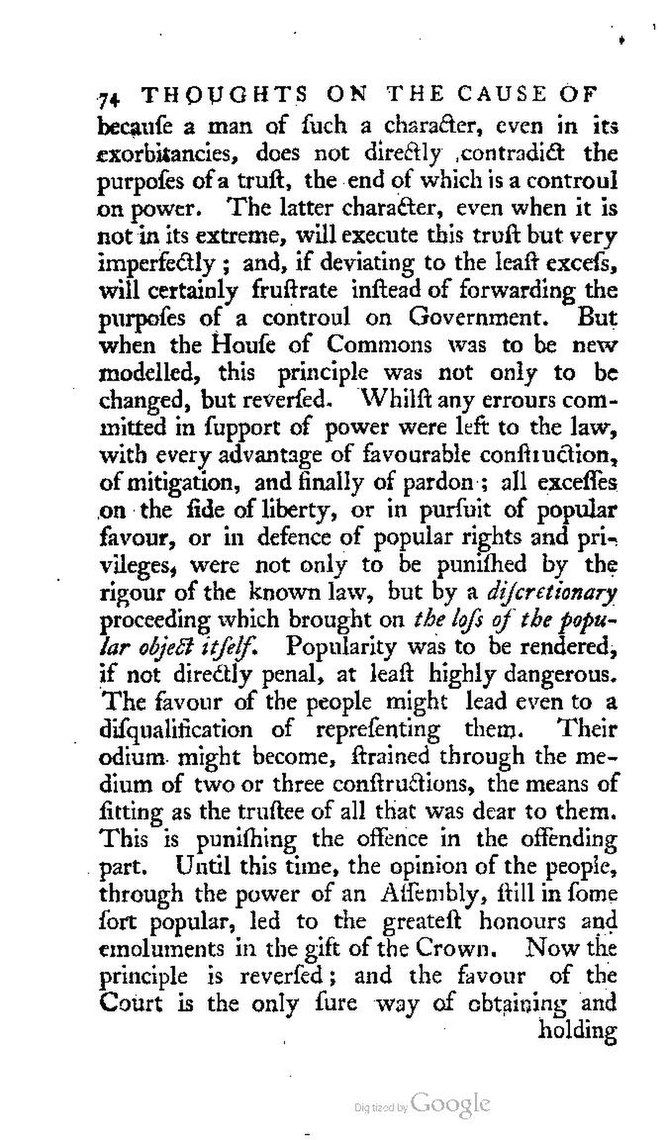because a man of such a character, even in its exorbitances, does not directly contradict the purposes of a trust, the end of which is a controul on power. The latter character, even when it is not in its extreme, will execute this trust but very imperfectly; and, if deviating to the least excess, will certainly frustrate instead of forwarding the purposes of a controul on Government. But when the House of Commons was to be new modelled, this principle was not only to be changed, but reversed. Whilst any errours committed in support of power were left to the law, with every advantage of favourable construction, of mitigation, and finally of pardon; all excesses on the side of liberty, or in pursuit of popular favour, or in defence of popular rights and privileges, were not only to be punished by the rigour of the known law, but by a discretionary proceeding which brought on the loss of the popular object itself. Popularity was to be rendered, if not directly penal, at least highly dangerous. The favour of the people might lead even to a disqualification of representing them. Their odium might become, strained through the medium of two or three constructions, the means of sitting as the trustee of all that was dear to them. This is punishing the offence in the offending part. Until this time, the opinion of the people, through the power of an Assembly, still in some sort popular, led to the greatest honours and emoluments in the gift of the Crown. Now the principle is reversed; and the favour of the Court is the only sure way of obtaining andholding
